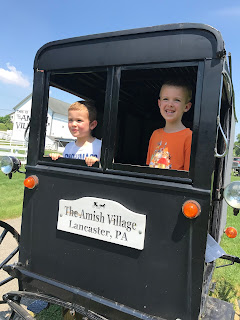This is a long one and much of what I discuss probably isn't news to those already actively working in the church. But it was so informative and rewarding to pull all these factors together. Can you think of anything I've missed? I'd love your thoughts!
Learning objective #2: Consider the state of Protestant churches in American society today: what is working, what is not working, what changes are being pursued to bring God’s word to life?
What then are the factors in American society that are most
affecting the church as it works its way through this time of change?
John Roberto addresses many of them in his book Reimagining Faith
Formation for the 21st Century: increasing diversity in American society,
the rise of digital technologies, changes and increasing diversity in religious
belief, practices and affiliations, and a decline in religious transmission
between generations. Increasing diversity is evident in the five
generations currently living in American society (silent/builders, baby
boomers, Generation X, Millennials, and the iGeneration). The United
States population is becoming more diverse, as trends indicate that in the next
few decades, white non-Hispanic Americans will decrease and all other ethnic
categories will increase. Diversity is also evident in the many different
family structures that have arisen as marriage has declined and divorce has
increased. Roberto summarizes how this factor poses a challenge for
churches: “Very few congregations are designed to address heterogeneity...How
well is congregational faith formation designed to address this new diversity?
How many faith formation programs are based on outdated understandings of
the people in their congregation and wider community,”?
Another pivotal factor affecting the church is the rise of digital
technology. The Internet has saturated American society over the last
couple decades and dramatically changed the way people conduct business and
live their lives. The shift of our lives into physical and digital
spaces, which was made possible by the rise of the Internet, mobile devices,
and social media networks, has led to the rise of “networked individualism,” in
which, “[e]ach person has become a communication and information switchboard
connecting persons, networks, and institutions,”. The Internet has
connected people in ways not possible before, over geographic distances and
keeping people connected who no longer or never were in the same physical space.
This has redefined people’s sense of the neighborhoods they live in and
who their neighbors are. They are no longer dependent on institutions,
like the church, to build connections between people. This is especially
true of Millennials, the first generation to grow up and be formed by digital
technologies. “If we want to meet the needs of our current congregations
and to continue to share the Gospel with younger generations, we must
understand networks and the new technologies that fuel them,”.
Finally, the number of people who consider themselves religious or
claim affiliation with an organized religion has dramatically declined in the
past couple decades. At the same time, the number of people with no
affiliation, the “Nones” or “Spiritual but Not Religious” (SBNRs) has
increased. People walking away from the church has been a grave concern
for those within the church, but they also provide a way forward. “Unless
the church takes seriously the theological reasons that they [SBNRs] give for
staying away from organized religion, any efforts to engage this population
will be hampered,”. This movement away from religion also means that
faith is not being passed on from one generation to the next.
Demographically speaking this is problematic for the church because it
will continue to lose members as the silent generation, who are loyal church
members, dies and as the Millennial and iGenerations choose to not attend.
The church can no longer depend on family and societal expectations to
keep people attending church as it did in previous decades. The
statistics of religious affiliation and practice demonstrate a deep discontent
with the religious status quo and suggest that people want something different
if they are to continue to engage or re-engage with the church.
Many churches and church leaders have already begun wrestling with
these challenges and are finding new ways forward. Diana Butler Bass and
John Roberto are two scholars who have considered the factors of belief,
behavior, and belonging. Previously, people spent their childhood
learning what to believe about God (catechism, Sunday School, confirmation),
then were expected to adopt the faith practices of their family as they reached
adulthood, thereby securing their perpetual affiliation with those beliefs and
the institution. As recent years have shown, that format of fostering
religious commitment is no longer effective. Some church leaders believe
that the reverse approach, belonging, behaving, and then believing, may be more
relevant in today’s society for several reasons. First, young people are
highly engaged in belonging. Through digital networks it is easy to
belong to many communities, both those people are involved with in the
real-world and ones they choose to engage with online. Behavior remains
an important middle step because actions are an effective method of teaching
faith. Younger generations are also attracted to action, as their
learning style is strongly participatory and built on experiences.
Finally, placing belief last takes the pressure off of individuals to
strictly adhere to a denomination or church’s doctrinal stances, which is
something many people have cited as a problem they have with institutional
religion. Intellectual reason and scientific knowledge have dramatically
changed humankind’s understanding of God and faith. The youngest
generations of today’s society are much more comfortable exploring these
tensions. A church community that embraces people and gently invites them
into the life of the community, while welcoming their doubts and questions and
demonstrating how to walk the life of faith in God, will likely be more
effective at building faith among younger generations.
Another shift that some churches are making is to spend more time
outside their walls. Some church leaders suggest that if people are no
longer coming inside churches to hear God’s word, then perhaps the role of
churches needs to shift to bringing God’s word out to the people. This
shift can be seen in ministries that arise independent of denominations in
order to avoid the obligations they might otherwise have to a denomination’s
bureaucracy. This shift can also be seen in pastors and church leaders
who intentionally and creatively work to bring their ministry outside church walls.
From bestowing ashes on people at a subway station to sharing coffee and
donuts at a bus stop to holding a worship service next to a food truck to
theology discussions in pubs and coffee houses, churches are working to be
present and active in the world in ways that are accessible to the religiously
affiliated and unaffiliated alike.
Some within the church are also wrestling with the theology they
teach. They are not abandoning fidelity to God’s Word in order to stay
relevant but rather are examining anew what God’s Word can say to contemporary
culture. In her examination of America’s “Nones,” for example, Elizabeth
Drescher presents a dichotomy between Golden Rule ethics and Good Samaritan
ethics. She presents Golden Rule ethics as the “old” way: the Golden Rule
assumes sameness across humans, that what is meaningful and beneficial to one
will be the same for others. While Nones express appreciation for Jesus’
teaching of this rule and often consider it part of their personal morality,
they also point out that sameness among humans is not necessarily true (see
earlier discussion of increasing diversity). Nones, and others within
churches, are increasingly concerned with broader, world-wide problems.
They want to meaningfully engage with those who are different from them.
The alternative, then, is Good Samaritan ethics. Jesus’ lesson in
the Good Samaritan is to care for others not as you would have them care for
you but to love others in their “otherness”. This concept is echoed by
another pastor considering what a different kind of outreach could look like:
“moving from a hand-out ministry, past a hands-on one, to one that values the
hand-in-hand...a church’s commitment to an outreach program that insists on
legitimate, relational experiences where a person is led to invest in those
unlike themselves, not just with their work, but even with their intimacy, is
so essential,”. Exploring how to enact Good Samaritan ethics in church
programs may lead to newer ways of speaking God’s Word to the world and attract
younger generations who want to engage with their faith in participatory,
relational, meaning-making ways.
Another newer theological movement to consider is how people
are finding and valuing the sacred in the ordinary. In the Introduction
to Grounded, Diana Butler Bass describes the “vertical theology” that
most Christians have been taught: God is far above us in heaven and we humans
are on earth, where churches are necessary to mediate between sinful humans and
holy God. In contemporary society, however, Bass sees this understanding
breaking down. “People are leading their own theological revolution and
finding that the Spirit is much more with the world than we have previously
been taught,”. Drescher’s understanding of Nones confirms Bass’ assertion
that people are finding and naming things holy in their everyday lives.
Many churches have recognized this and begun thinking creatively about
how to join people in their sacred ordinary. This is evidenced by their
willingness to have deep theological discussions in bars and coffee shops
rather than inside churches. It is seen in events like Blessing the
Backpacks before children start a new school year or a Blessing of the Animals
to recognize the importance of pets in people’s lives. Studies show that
religiously affiliated Americans find sacred meaning in the same ordinary
things that Nones do, things like food, family, and friends. This common
ground among two different groups demonstrates the contemporary attitude in
America that churches do not have a monopoly on God or God’s presence.
Churches who can honor and become involved in the many ways that people
see God in the world will have better success connecting with contemporary
Americans.
The many applications of technology to the work of the church are
still being discovered, but this discovery process has already led to some
exciting innovations. One application is to use technology to provide
church resources to people not physically in the church. This can include
live-streaming a church’s worship service so that members who are unable to
physically attend can still participate and feel part of the congregation.
This also means distributing videos, podcasts and other content to
facilitate faith formation at home among families. One of the most
significant applications of technology, however, lies in its ability to build
and maintain relationships. Since social media platforms have enabled
people to live and share their lives online, churches have an opportunity to be
present on those platforms. Their presence should not be merely to
advertise what is going on in their church but to engage in relationship
building. One pastor considers his vocation in this new era to be a
“relational leader” whose goal is not to preserve the institution of the church
but rather, “to be in relationship, and in relationship we have an opportunity
to share the Gospel, finding ourselves in relationship together with God,”.
Relationships motivate young generations and they are an effective way to
share God’s Word. Utilizing technology and social media to make churches
a “meaningful node” in people’s networks will help to strengthen the mission of
the church.
Books cited in this portion of the paper:
John Roberto, Reimagining Faith Formation for the 21st Century: Engaging All Ages and Generations
Keith Anderson, The Digital Cathedral: Networked Ministry in a Wireless World
Diana Butler Bass, Christianity After Religion: the End of Church and the Birth of a New Spiritual Awakening
Nate Phillips, Do Something Else: The Road Ahead for the Mainline Church
Elizabeth Drescher, Choosing Our Religion: the Spiritual Lives of America's Nones
Diana Butler Bass, Grounded: Finding God in the World-a Spiritual Revolution










































